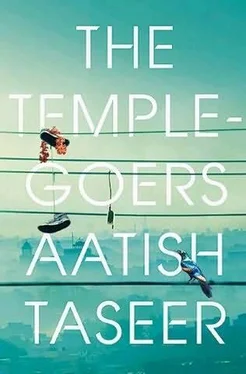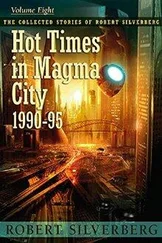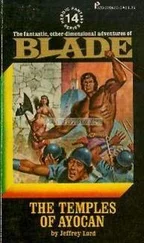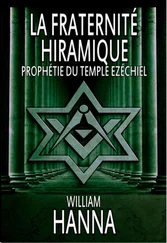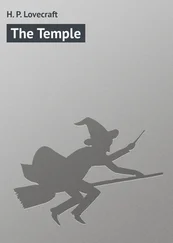‘What’s all this khoospoos you’re doing?’ she snapped.
‘Nothing, Begum,’ Aakash yelled back. ‘Just pointing out the photo of your son.’
‘Oh,’ the begum said, and lowered her head. ‘Poor boy, working as a chowkidar.’
Aakash put both his thumbs to his temples and wiggled his fingers in a child’s gesture of defiance.
When he was near climax, he rested his arm on my shoulder and began again to massage the back of my neck. His rough wrinkly fingers pressed painfully as he came nearer an orgasm. When at last he pulled out, in one movement tearing off the condom and thumbing out long strands of semen over the begum’s back, I could hardly stand the pain. I pushed his hand away and he fell forward, dropping his body over the begum’s for a moment and laughing euphorically.
‘Slowly, slowly,’ the begum cooed, as if glad to finally have some physical contact.
‘Begum,’ Aakash said in a broken voice, ‘can I ask you something? You won’t take it badly?’
‘Tell me, baba.’
‘I’m starving. Is there anything to eat? Brad, butter, a desi omelette?’
‘Baba!’ the begum said indulgently. ‘Is this even something to ask for! Of course your begum will make you an omelette. You’ll take green chillis in it, no?’
‘Yes, Begum. You’re the best.’
The begum rolled Aakash off her back, rose agilely and picked her way past me.
I sat down on the bed next to Aakash. He pulled his jeans back on and sat up. I thought that he spoke indirectly to me when he said, ‘Don’t mind what happened earlier. I have this problem routinely in my life. When I get involved with someone, I burrow into their mind. They can’t get me out and they start behaving irrationally.’
‘What was this deep, dark secret she kept going on about?’
‘Nothing, man, nothing. She’s mad. But let’s leave all these serious things. We had fun, right?’
A few minutes later the begum appeared in the doorway with a plastic plate. As she handed it to him, Aakash looked up at her with adoring eyes. ‘Food cooked by Begum’s own hands,’ he muttered, using Bollywood lines as he tore up the omelette with his fingers. She rested her palm on his shoulder. He sat crouched over the omelette, rolling up the long shreds he’d made before putting them into his mouth. Then lips glistening, chewing noisily, he looked up at us with the glazed contentment of cattle drinking. His self-absorption was that of a man who would have been truly amazed to learn that either of us had any plans other than to watch him wolf down a post-coital omelette.
My phone beeped. Sanyogita. ‘Baby, off to bed. Will you be home soon?’ I put it away, feeling an urgent longing for her bed and her warm, sleepy presence near me, washing clean the night’s exposure. Aakash, licking his chops, looked resentfully over at the challenge to his centrality. The begum’s nails drooped off his shoulder. The Alsatian had also now nosed its way in, and with its head edgewise, sniffed, and began licking clean Aakash’s empty plate.
Delhi in that last week of May, despite the great heat, was filled with flowers. There were burnt orange blossoms on the gulmohar’s fern-like leaves, mauve tendrils fountaining from the jarul’s thatched canopy, and the blaze itself seeming to reside in the laburnum’s yellow flowers.
On my last afternoon I sat with Zafar, reading the Urdu newspaper. The affection that had grown between us had softened his insistence on teaching me to write. I’d mastered the script’s meaningful single and double dots and mysterious elisions, and had started reading well. But if I ever confused an ‘n’ with a ‘b’, he would croak irritably. If only I’d followed his advice and learned to write first, none of this would be a problem.
The newspaper was a thin, oily rag with splashes of bright colour and ink that blackened your fingers. The sessions with Zafar had reinforced my vocabulary in definite ways. I drank in ordinary words like ‘often’, ‘perhaps’, ‘unintentionally’ and ‘complete’. Simple words; easy to take for granted till lost and regained in another language. The newspaper offered them up daily, and reading it also became a way for Zafar and me to discuss the week’s events.
For months now the country had been seeing waves of new motiveless crime. In Bombay, there were the beer-can murders. A bearded jihadi wandered the city’s streets, hunting down homosexuals. His calling card was a can of Kingfisher left by the bodies of his victims. Ra was hysterical about copycat murders in Delhi, now seeing its own incidents of brand-new crime in its satellite towns. In Sectorpur there was a flesh-eating serial killer in whose oven the skeletal remains of women and children had been found. And in Phasenagar there was a double homicide. A fourteen-year-old girl had been found with her throat slashed while her parents slept in the next room. When the police arrived, ready to arrest the servant, they found him face down in a pool of his own blood. The death of their natural suspect threw their investigation into disarray. A day later, the girl’s father was arrested. He was said to have killed her for threatening to expose a wife-swapping arrangement with his best friend. The TV channels fed the public each detail in hourly intervals; the city was mesmerized. There was in the details an inexplicable…
‘… vehshat,’ Zafar offered.
‘What?’
‘Vehshat,’ he repeated.
The sound that gave the word its ring was ‘ehsh’. It had the same casual violence of words like lash and stash, but the ‘eh’ sound was less direct, less open, oblique somehow. It was a word that seemed to convey meaning before I knew what it meant; it rhymed with dehshat, terror, and began almost like vaishya, whore. But Zafar was stuck; he looked through three dictionaries without finding a synonym I could understand. The badly printed Urdu-English dictionary offered ‘wild’ and ‘savage’, but when I translated that back into Urdu for Zafar, he said that was wrong. We often ended up in these hopeless circles. I didn’t understand his Urdu explanations and he didn’t understand the dictionary enough to confirm or reject its synonym. So vehshat lingered, full of suggestiveness but without clear meaning. And yet it seemed so right, detonating from Zafar’s lips as soon as he read the newspaper. The power of its effect on both him and me, and the lack of a synonym to describe that effect, made Zafar say more.
He seemed to measure me up before revealing what was on his mind. Then, as if resigned to the risk of being misunderstood, he said, ‘There’s a vehshat deep within this country. It comes, I think, from the religion. Or, perhaps, because the socially conscious religions, Christianity and Islam, never gained a firm enough footing. They could never close over the history of animalism and sacrifice. The land and people of this country retain this memory. And it gives them this capacity, a capacity for vehshat.’
Zafar treated me like a Muslim. The hunted-minority expression widened his eyes and stilled his lips. ‘The land is stained,’ he muttered. ‘It has seen terrible things: girl children sacrificed, widows burned, the worship of idols. The people in their hearts do not fear God. Their law is not theirs, you see. It was first the Muslim law and then it was the English. And because the law is alien, they can always shrug it off and the vehshat returns.’
I turned absent-mindedly to the paper and was leafing through its greasy pages when I saw a picture of Chamunda. It was a grainy image of her in red and green astride a lion. If not for the distinctiveness of her features, her comic-book lips, her vast eyes, I might not have recognized her. She wore a gold crown and carried a trident. At her ankleted feet, a priest knelt over a Shiva linga, smearing it orange. Garlands of jasmine, roses and marigolds were tied tightly around its base. I couldn’t read the caption and asked Zafar for help.
Читать дальше
